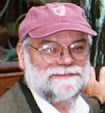Does a Catholic have to vote one way or another in the presidential race? The issues are complex, and the candidates' views are often contradictory, at least as they apply to the "life" issues. For example, I am against many of Obama's positions on the abortion issue, but favor his stances on many other life issues. For the most part, I favor McCain's position on the abortion issue (but I don't like the extreme stance of prohibiting abortion even in the case of rape, or incest; I'm not in favor of abortion in those circumstances, but I wouldn't want to prohibit it or criminalize it). So how does a conscientious Catholic deal with such issues?
This past Saturday (October 18, 2008), I read a column by Regina Brett that addresses these perplexing issues very well. Brett is one of Cleveland's (and the nation's!) best, most thoughtful writers. Here are some of her comments (for the entire column, visit http://www.reginabrett.com/):
"For the first time since John F. Kennedy, we might get a Catholic in the White House, so the abortion issue is hotter than ever. Forget Joe Six-Pack and Joe the Plumber. Sen. Joe Biden stands to win or lose the Catholic vote.
Is he a good Catholic? Depends on how you measure that. Some use abortion as the only gauge, as the only way to measure the value a candidate places on life.
Yet the late Cardinal Joseph L. Bernardin of Chicago urged us to have a consistent ethic of life that goes beyond the womb.
'Our moral, political and economic responsibilities do not stop at the moment of birth,' he said. 'Those who defend the right to life of the weakest among us must be equally visible in support of the quality of life of the powerless among us: the old and the young, the hungry and the homeless, the undocumented immigrant and the unemployed worker.'
Abortion is a crucial issue, but it isn't the only one that should influence our vote.
One of the best guides I've ever seen on voting showed up in my mail four years ago. Spiritual author Megan McKenna wrote it.
She suggested looking at all the issues: war, poverty, health care, jobs, immigration, housing, education, the environment, the death penalty, abortion and same-sex marriage.
Here's her best advice:
Vote for the person you think will do the most amount of good on all issues.
Vote for the person you believe will do the least amount of harm on all issues.
Vote for the person you believe will allow you to do the most good.
Talk to others about what the priorities should be for our country and the world.
Pray alone and with others.
Reflect on the needs of the common good, not just your own.
Look at a candidate's values and their overall record.
Then, vote for a candidate you believe is 'the best hope for the human race, inclusive of the U.S. and every other country in the world.'
Anyone who is undecided should ignore the ads and e-mails and collect the most accurate information. Take McKenna's advice, then listen to that small, still voice inside and answer this:
Which candidate offers the greatest hope where it is needed the most? "
I have weighed these many life issues and have made my decision. I understand that many friends and family members will do this calculus differently--and I respect that.
Monday, October 20, 2008
A Catholic in the White House? "Life" Issues.
Subscribe to:
Post Comments (Atom)


No comments:
Post a Comment